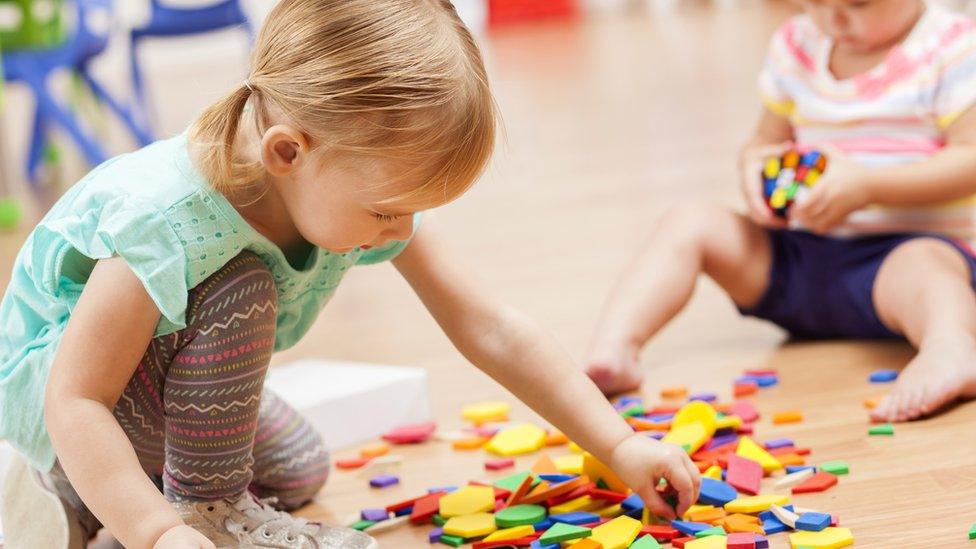Scottish Child Payment 'could have been done years earlier'
- Published
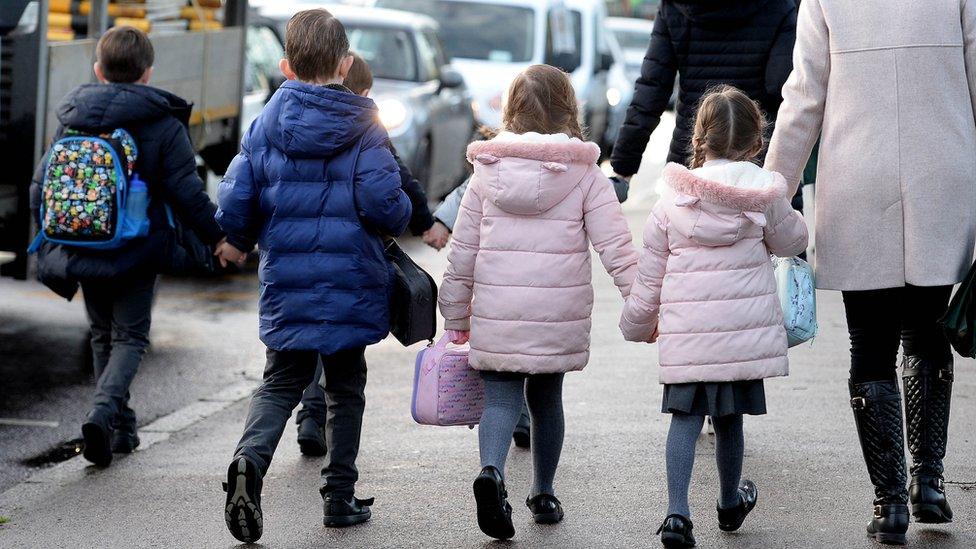
Scottish Child Payment was first introduced in 2021, for low-income families with children under six
One of the Scottish government's flagship welfare reforms could have been introduced years earlier, a former cabinet secretary has revealed.
Alex Neil proposed a version of the Scottish Child Payment in 2016, but said the idea was "instantly dismissed" by Nicola Sturgeon as "unaffordable".
The payment was introduced in 2021 and has recently increased to £25 per week.
A Scottish government source said the scope of Holyrood's welfare powers was not clear at the time of the proposal.
Mr Neil spoke out about the plans in the latest episode of the Nicola Sturgeon podcast on BBC Sounds.
The Scottish Child Payment is a weekly grant for every child in households which claim certain benefits or tax credits, with more than 400,000 families eligible.
It was first announced in 2019 and launched in February 2021 - it is frequently lauded by ministers as a "game-changing" reform.
Ms Sturgeon cited it as one of her proudest achievements in her final speech as first minister.
But Mr Neil - who was cabinet secretary for social justice in Ms Sturgeon's first government - said it could have been introduced much earlier.
He said: "I prepared a very comprehensive paper, all costed out by government economists and so on, to propose what eventually became the Scottish Child Payment.
"I thought that targeted payments to children, backed up by a top-up on child benefit to catch the people in the margins of poverty, was the right way to go.
"I sent that paper to Nicola and within an hour I got a reply saying she didn't support unaffordable proposals. She just instantly dismissed it."
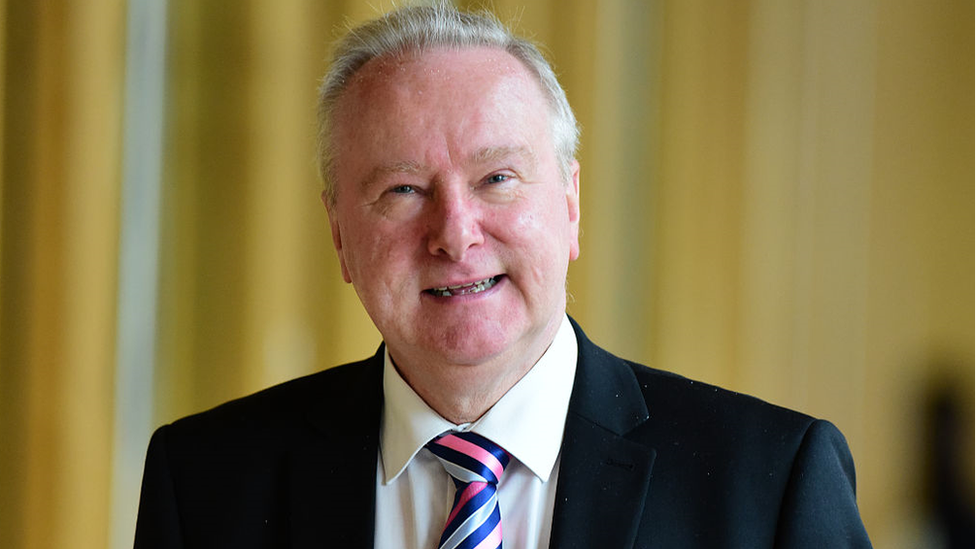
Alex Neil was an MSP for 22 years and a government minister under Alex Salmond and Nicola Sturgeon
Mr Neil said the payment has been "very successful" since it came into effect in 2021, but added: "We could have introduced it a lot earlier, in my view. We could have afforded it and it could have prevented quite a number of children getting into poverty in Scotland."
BBC Scotland has seen a paper which Mr Neil submitted to cabinet in early 2016, which set out options for a "Scottish Child Allowance" of £28 per week.
It said the measure could contribute to "a significant reduction in the headline poverty rate", but acknowledged that it could cost £480m per year.
A Scottish government source said Mr Neil had carried out "important initial work" on tackling poverty, but that this had taken place at a point when welfare powers were still in the process of being devolved to Holyrood.
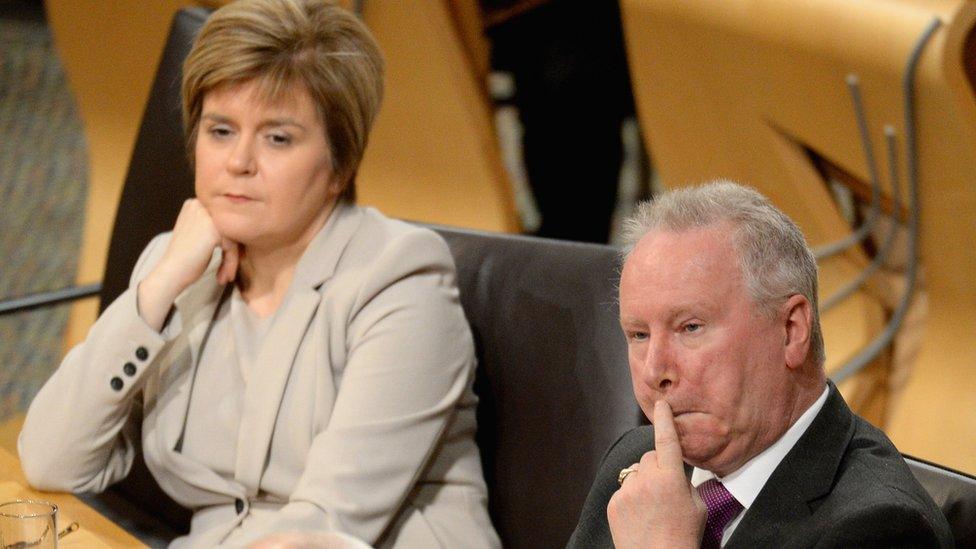
Alex Neil left Nicola Sturgeon's government in a reshuffle later in 2016
They added: "It was not clear what specific powers we would have around top-up payments until the final stages of the Scotland Act 2016.
"It was this - along with a clear focus on child poverty from the former first minister - which led to the Child Poverty Act and the detailed policy development needed to introduce the Scottish Child Payment."
Other ministers who spoke to the podcast said Ms Sturgeon's time as first minister had been successful in sharing wealth across society.
Jeane Freeman, a former social security minister, said: "It's a bit not noticed, but I think she had a real redistributive approach to how she wanted to improve the quality of life for people in Scotland.
"Everything that was done with the limited tax-raising powers the Scottish Parliament has, through to the child payment, through to some of the other measures to try to redistribute both opportunity and wealth in Scotland are a significant part of her legacy."
A spokeswoman for Nicola Sturgeon said the "game-changing" payment was "acting as a lifeline for some of the most vulnerable children across Scotland who are being forced to suffer the impact of a Westminster cost of living crisis".
Related topics
- Published15 November 2022

- Published14 November 2022
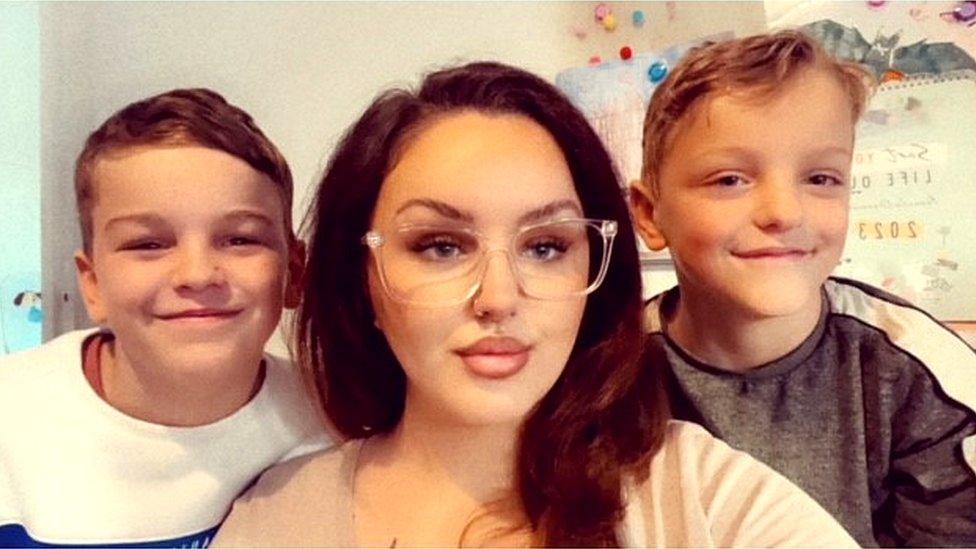
- Published24 March 2022
